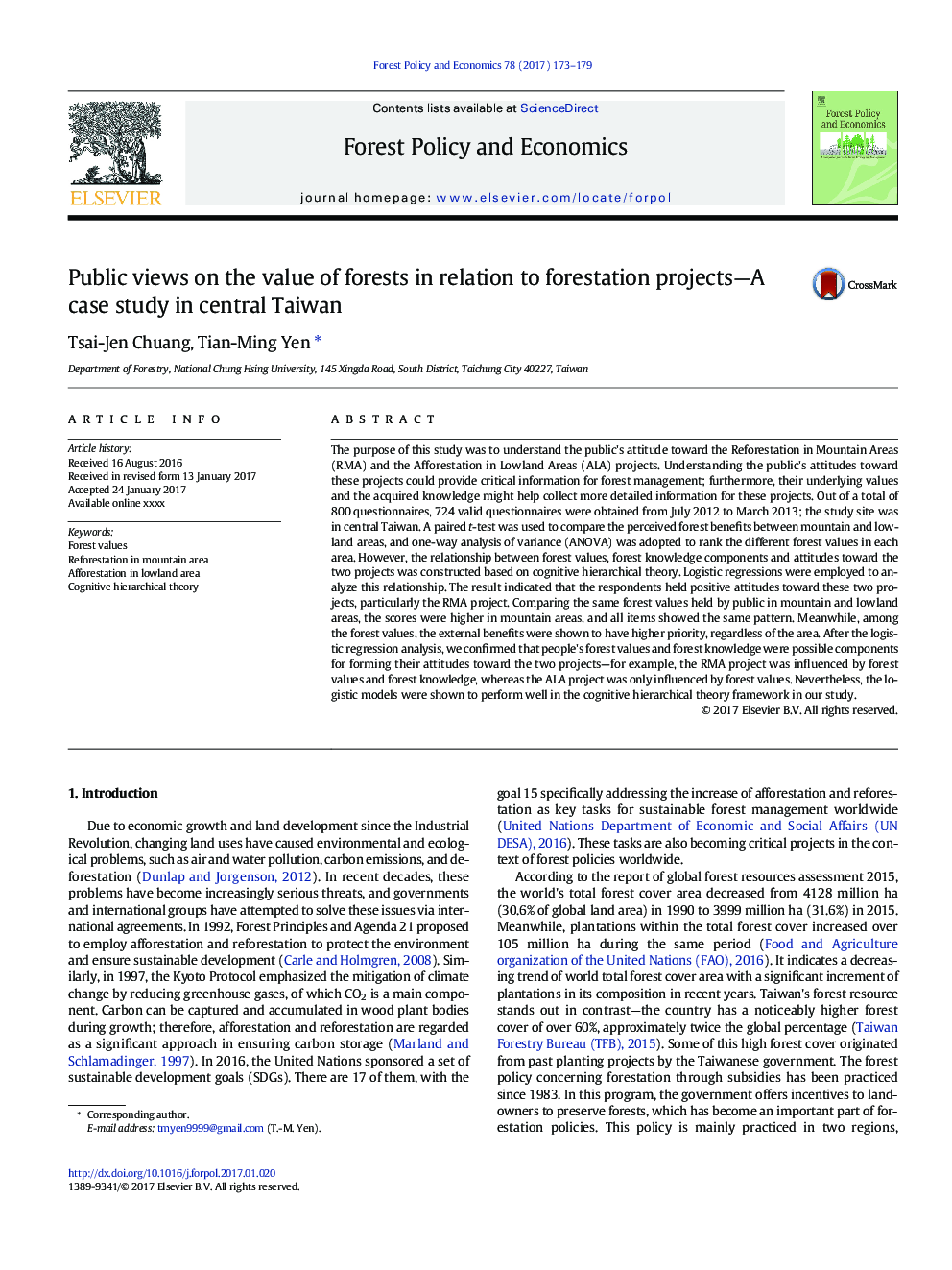| کد مقاله | کد نشریه | سال انتشار | مقاله انگلیسی | نسخه تمام متن |
|---|---|---|---|---|
| 4759779 | 1421661 | 2017 | 7 صفحه PDF | دانلود رایگان |
عنوان انگلیسی مقاله ISI
Public views on the value of forests in relation to forestation projects-A case study in central Taiwan
ترجمه فارسی عنوان
دیدگاه های عمومی در مورد ارزش جنگل ها در رابطه با پروژه های جنگلی - یک مطالعه موردی در مرکز تایوان
دانلود مقاله + سفارش ترجمه
دانلود مقاله ISI انگلیسی
رایگان برای ایرانیان
کلمات کلیدی
ارزشهای جنگل، جنگل زدایی در منطقه کوه، جنگل زدایی در منطقه دشت، تئوری سلسله مراتبی شناختی،
موضوعات مرتبط
علوم زیستی و بیوفناوری
علوم کشاورزی و بیولوژیک
جنگلداری
چکیده انگلیسی
The purpose of this study was to understand the public's attitude toward the Reforestation in Mountain Areas (RMA) and the Afforestation in Lowland Areas (ALA) projects. Understanding the public's attitudes toward these projects could provide critical information for forest management; furthermore, their underlying values and the acquired knowledge might help collect more detailed information for these projects. Out of a total of 800 questionnaires, 724 valid questionnaires were obtained from July 2012 to March 2013; the study site was in central Taiwan. A paired t-test was used to compare the perceived forest benefits between mountain and lowland areas, and one-way analysis of variance (ANOVA) was adopted to rank the different forest values in each area. However, the relationship between forest values, forest knowledge components and attitudes toward the two projects was constructed based on cognitive hierarchical theory. Logistic regressions were employed to analyze this relationship. The result indicated that the respondents held positive attitudes toward these two projects, particularly the RMA project. Comparing the same forest values held by public in mountain and lowland areas, the scores were higher in mountain areas, and all items showed the same pattern. Meanwhile, among the forest values, the external benefits were shown to have higher priority, regardless of the area. After the logistic regression analysis, we confirmed that people's forest values and forest knowledge were possible components for forming their attitudes toward the two projects-for example, the RMA project was influenced by forest values and forest knowledge, whereas the ALA project was only influenced by forest values. Nevertheless, the logistic models were shown to perform well in the cognitive hierarchical theory framework in our study.
ناشر
Database: Elsevier - ScienceDirect (ساینس دایرکت)
Journal: Forest Policy and Economics - Volume 78, May 2017, Pages 173-179
Journal: Forest Policy and Economics - Volume 78, May 2017, Pages 173-179
نویسندگان
Tsai-Jen Chuang, Tian-Ming Yen,
